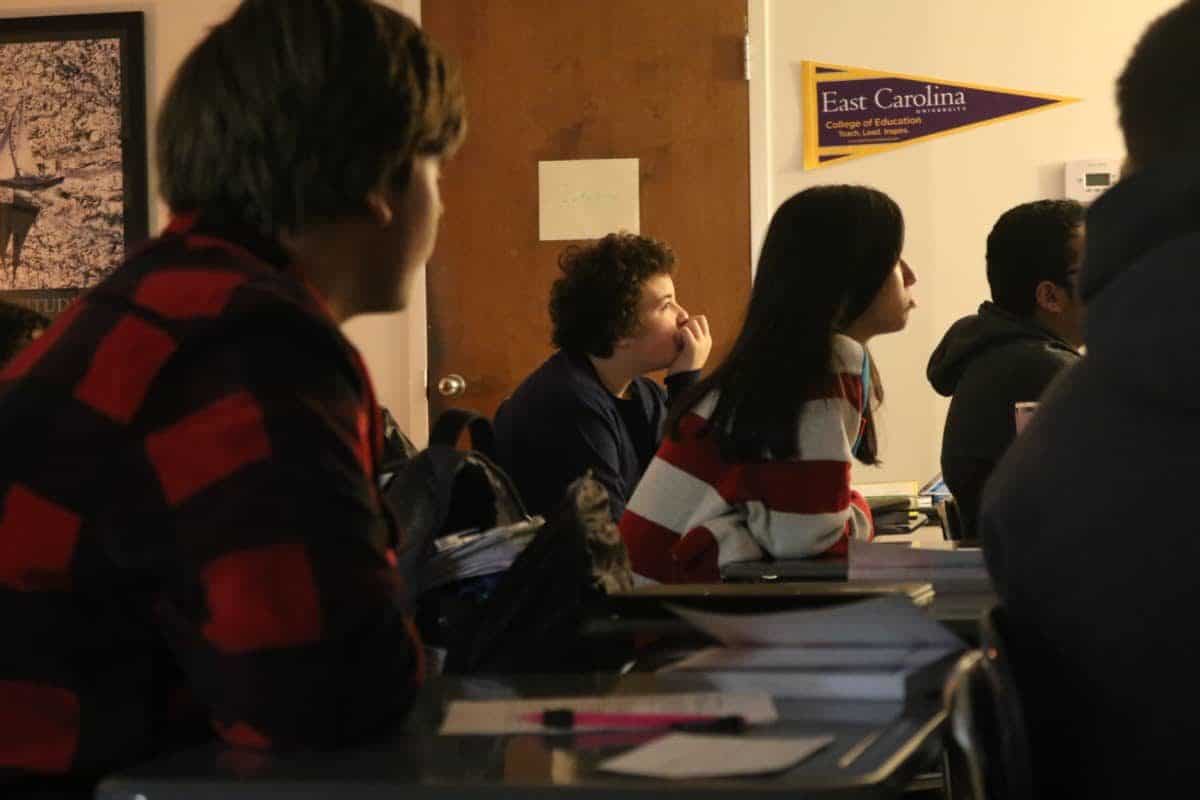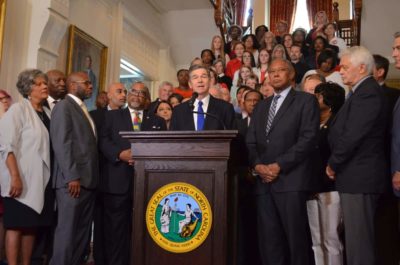

As we’ve covered extensively at EducationNC, the Senate budget included a provision that would ultimately get rid of supplemental funding for established Cooperative Innovative High Schools — including early colleges — and limit future funding. New Cooperative Innovative High Schools would get supplemental funding for their first three years of life and then no more.
Fortunately, the compromise budget did not include this provision. Of course, if the governor’s veto is sustained, then the whole thing is up in the air. But it seems, at least, that the legislature no longer has the stomach for striking Cooperative Innovative High Schools down. And it’s doubtful the governor does. So, it seems they are safe for now.
But before the compromise was revealed, that Senate provision already claimed a victim. The Carteret County Board of Education met and voted to close the Marine Science and Technology Early College High School (MaST), in part, because of the prospect that early college high schools would lose their supplemental funding.
The chair of that board of education said that even if the cuts didn’t go through in the legislature, he still didn’t think his board would reverse the decision. But last week, the students of that school at least got a temporary reprieve.
The board’s attorney told members that they hadn’t followed the correct procedures for closing the school and needed to embark upon a formal closure process that includes a study, a public hearing, and then a final vote.
The board chair told Carteret County News-Times that families shouldn’t get their hopes up. He said it’s too late to keep the school open and the board is just trying to follow the correct legal procedures.
But, the original vote to close the school was 4-3, and there is a lot of public outcry against the closure, so it’s perhaps too early to count MaST out.
While the families of MaST wait, so, too, do the rest of us. We wait for the budget.
The budget
On Friday, Governor Cooper vetoed the biennium budget. This week, the House is out and the Senate will join them starting Wednesday. But when everybody’s back, the budget drama will start anew. First, the House has to hold its veto override vote. It’s expected that Republicans don’t have the votes to override the veto, and if that’s true, then negotiations between legislative Democrats and Republicans and the Governor will start in earnest.
This is unprecedented in my roughly four and a half years at EducationNC. There have been long budget negotiations and protracted legislative sessions, but I’ve never seen the Republican budget actually be at the mercy of the governor. The conversations between the governor and legislative Republican leaders are sure to be complicated, but assuming the veto is sustained, the final budget will end up being something not seen in the past half decade in North Carolina: a truly bipartisan budget.
This week we all get a moment to relax. Next week, the action starts up again.
Postsecondary attainment goal
Last week, the legislature passed a bill that would set a postsecondary attainment goal for North Carolina. That goal is to have two million residents between the ages of 25 and 44 complete a high-quality credential or postsecondary degree by 2030.
This attainment goal was announced by the myFutureNC Commission in February 2019, and it has now been adopted as a goal for all of North Carolina.


